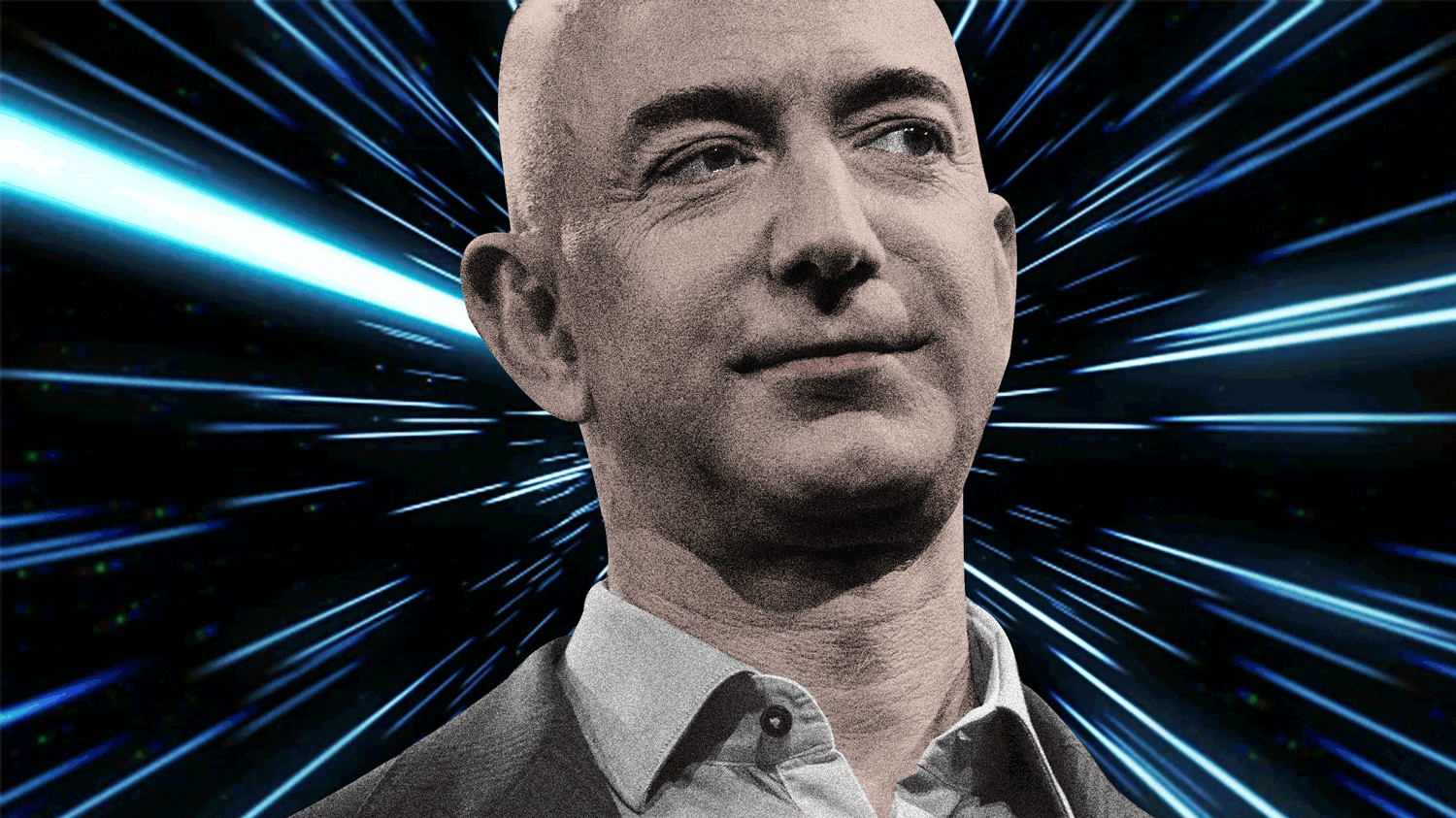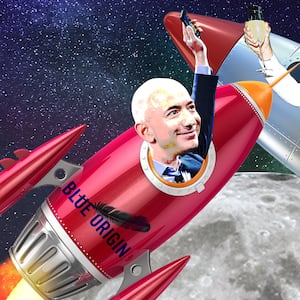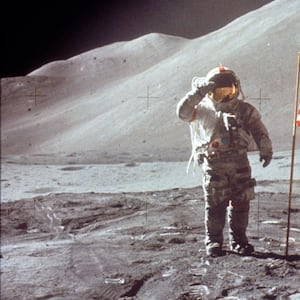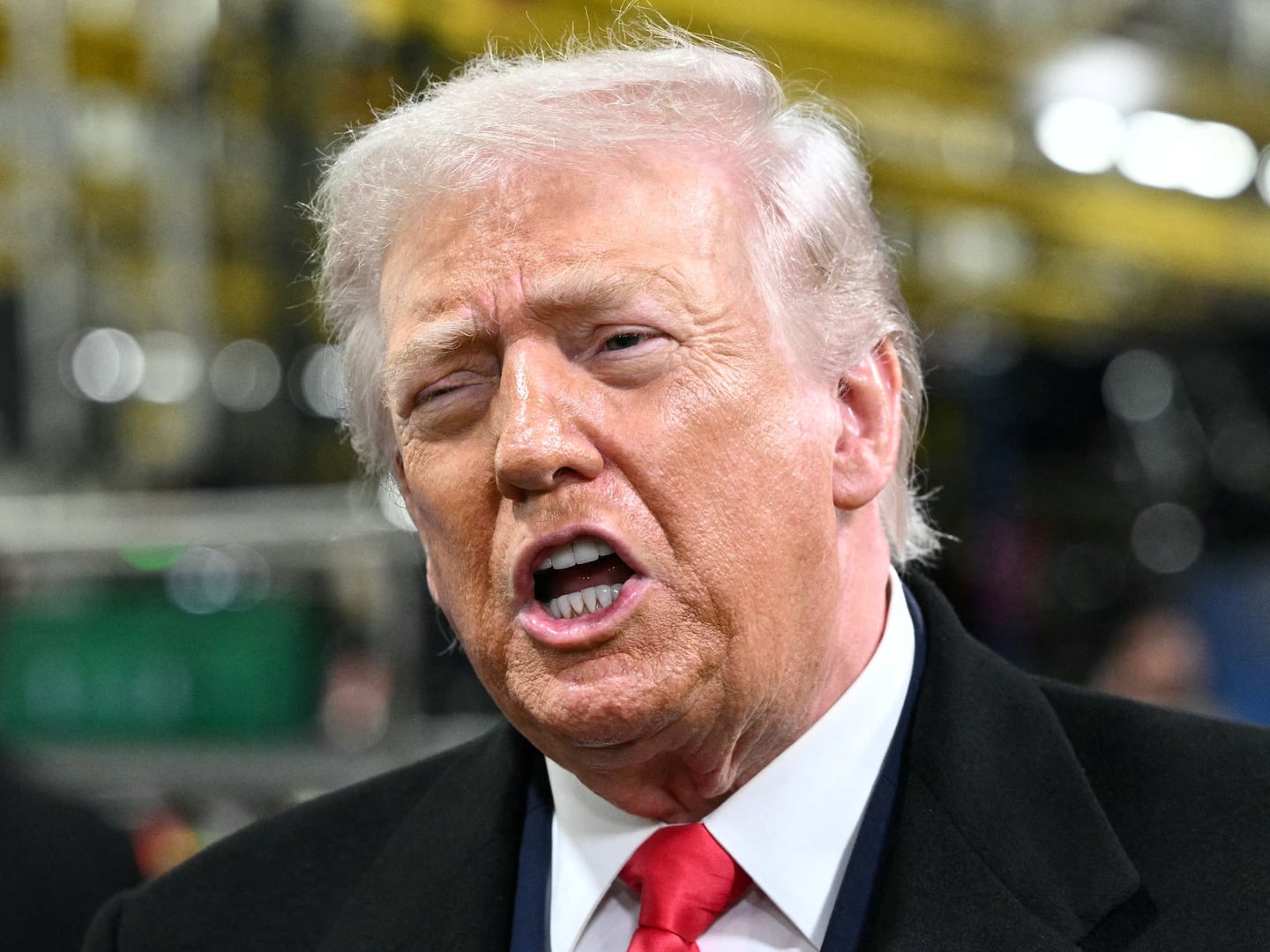Billionaire Jeff Bezos made a rare public appearance in Washington, D.C. on Thursday to make a startling pitch: It’s time for humans to start colonizing the moon—and soon.
The founder of Amazon explained that his call for a permanent extraterrestrial population is rooted in his belief that Earth alone cannot sustainably feed, shelter and power billions of human beings.
“Earth is the best planet,” Bezos quipped. “It is not close. This one is really good. Don’t even get me started on Venus.”
But Earth’s resources aren’t enough for a growing human population, Bezos argued, saying that even increases in energy efficiency can’t solve humanity’s resource problem, he posited.
Among the guests at Bezos’s event were former astronauts Jack Schmitt and Sandy Magnus and several top NASA officials.
Making technology more efficient just incentivizes us to acquire more tech and use it more intensively, Bezos argued. “What happens when unlimited demand meets finite resources?” he asked. “Rationing.”
"That’s the path that we would be on,” he added. “It would lead for the first time to where your children and grandchildren have worse lives than you. That's a bad path."
But there’s good news, the billionaire said. The solar system has “unlimited” resources.
To continue growing, Bezos suggested that humans get off-planet ASAP. He displayed a slide depicting an enormous space station sheltering an Earth-like landscape with lakes, farms, forests, and wildlife, along with human infrastructure like houses, factories, roads and railways.
Futurists refer to these orbital habitats as “O’Neill colonies” after physicist Gerard O'Neill, who in the 1970s popularized the idea of self-sustaining space communities.
“Our choice,” one of Bezos’s slides read, is between “stasis and rationing or dynamism and growth.” Off-world colonies would be a sort of pressure valve for the human race, reducing demand for Earth’s own resources by building, in space, miniature earths that efficiently can tap resources on the moon and in nearby asteroids.
“Okay, where are we going with this?” scientist Lindy Elkins-Tanton, who attended the Washington event, tweeted early in Bezos’s presentation.
“Jeff Bezos has wanted to go to space forever,” Elkins-Tanton added.
But Bezos still is a businessman. It’s not a secret he aims to profit off his space exploration. Bezos’s space company Blue Origin builds rockets and could benefit from the massive launch infrastructure that would be required for the construction and support of off-world habitats.
In a May 2 test in Texas, Blue Origin successfully launched and landed one of its reusable New Shepard rockets. Among other space missions, Blue Origin hopes to use the 59-feet-tall New Shepard to send tourists into space.
New Shepard could fly with human passengers for the first time as early as this year. Blue Origin also is developing New Glenn, a 310-feet-tall rocket that, if it works, would be among the biggest space-launch vehicles in history when it first flies as early as 2021.
At present it costs NASA and partner space agencies billions of dollars a year to support the International Space Station and its six occupants. Any single O’Neill colony would be hundreds of times larger than the ISS and presumably would cost hundreds times more to build.
That could involve a lot of trips by New Shepards and New Glenns.
What’s more, anyone building a giant space habitat likely would use the moon as a staging base and a source of raw materials.
The Trump administration isn’t shy about its intention to return American astronauts to the lunar surface by 2024 in order to stake a claim on potentially hundreds of billions of dollars worth of cobalt, gold, helium, iron, palladium, platinum, tungsten and other resources.
“As more countries land on the moon, we risk a Wild West situation without clarification of ownership rights,” Commerce Secretary Wilbur Ross said at space conference in Colorado in April.
Bezos wants some of those rights for himself. Halfway through his Washington event, Bezos unveiled a mock-up of Blue Origin’s new Blue Moon lunar lander. He also revealed the design of a new rocket motor that Blue Origin is designing specifically for moon missions.
The lander in particular could help NASA to meet its accelerated deadline for returning astronauts to the moon. The space agency has planned to land on the lunar surface in 2028, but Pres. Donald Trump apparently wants to re-plant the U.S. flag on the moon before the end of his possible second term.
Bezos wrapped up his presentation with an inspirational slide. “Earth is the best planet,” the slide read. “We need to protect it. We need the resources of space.
“It’s this generation’s job to build the infrastructure.”







